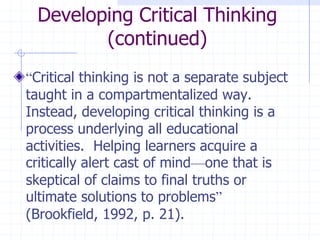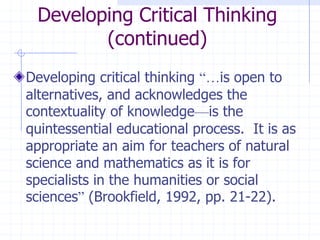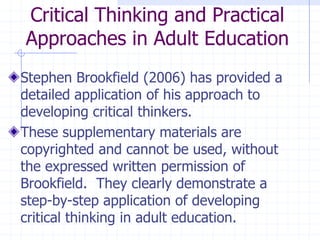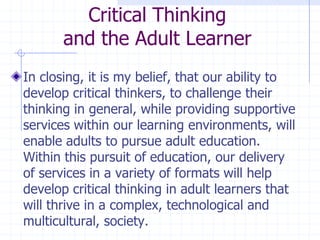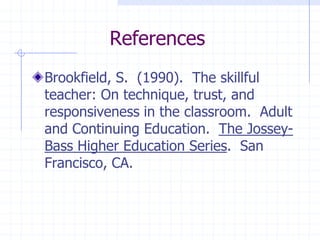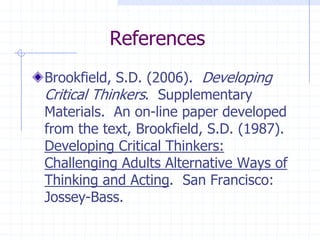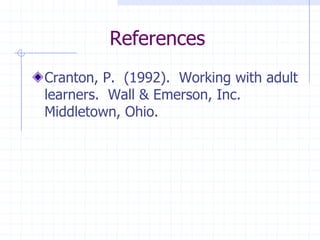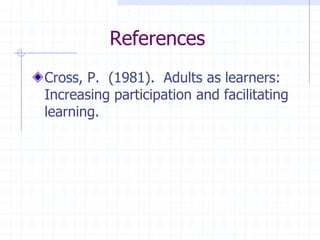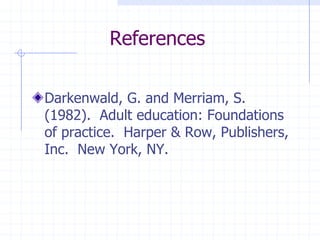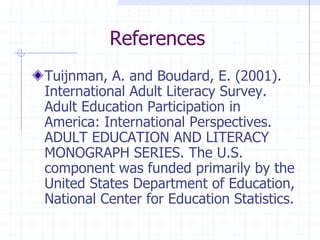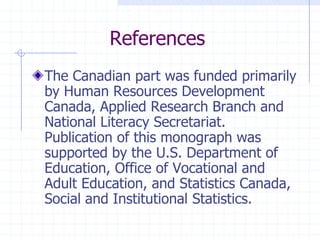The presentation by Dr. Vera Lee Byrd discusses the evolution of adult education, emphasizing its distinction from traditional learning paradigms and the significance of lifelong learning. It highlights pivotal contributions from psychologists and social scientists, particularly around the concept of 'andragogy' which focuses on the unique characteristics and needs of adult learners. The importance of developing critical thinking skills in adult education is underscored as essential for personal and societal engagement.
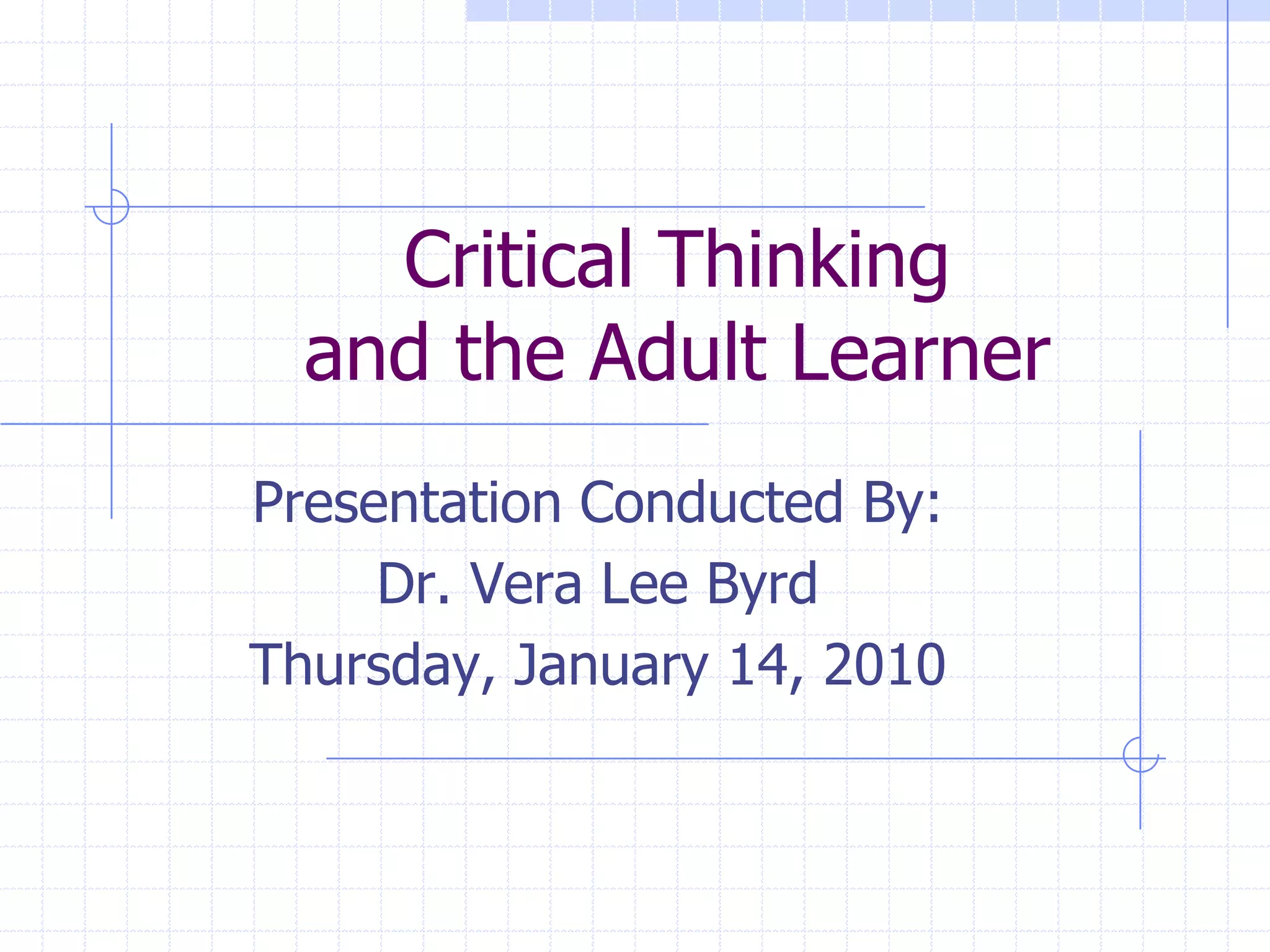
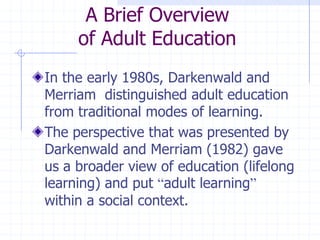
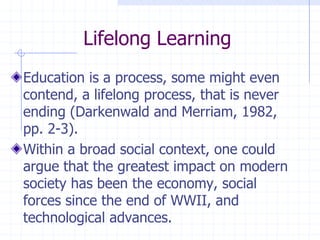
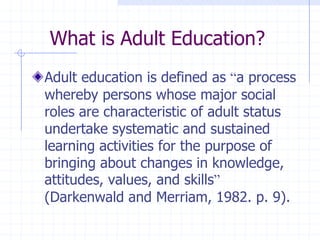
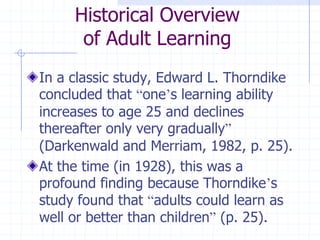
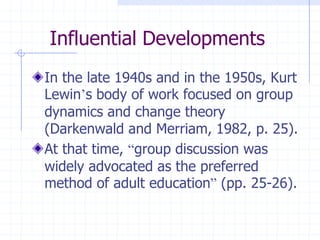
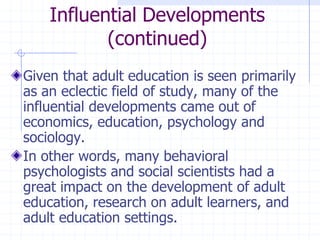
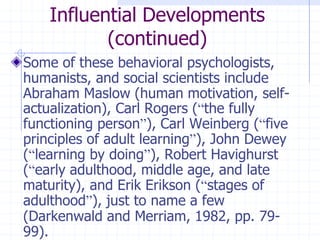
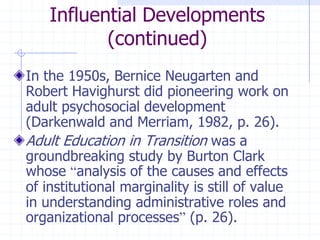
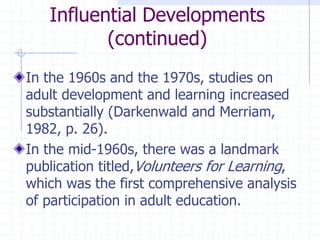
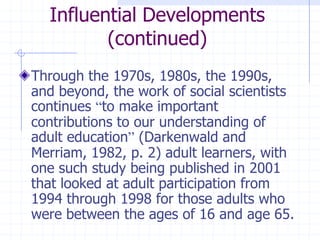
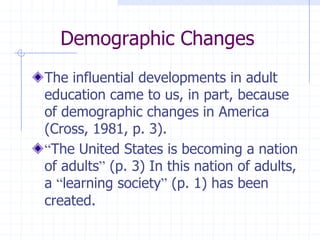
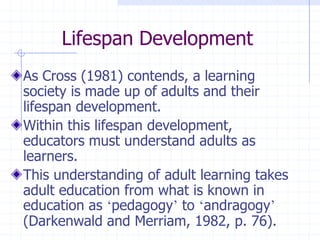
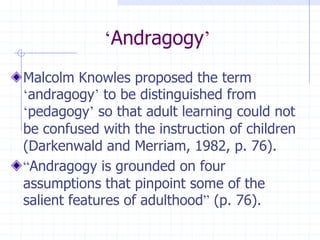
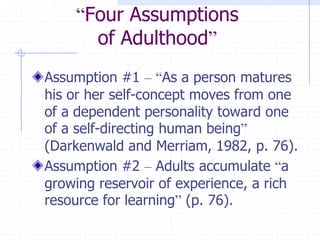
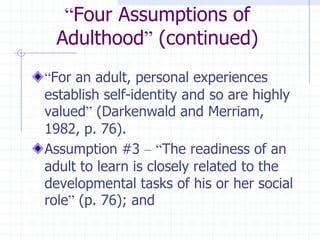
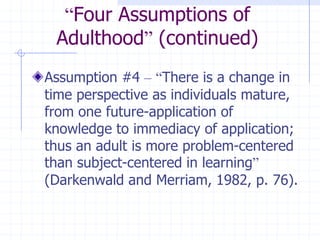
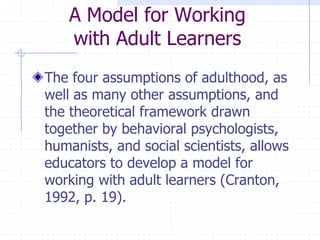
![A Model for Working withAdult Learners (continued)Cranton (1992, pp. 19-20) concludes that “the learner and the educator work together within a learning environment which is itself within a social context” . Within this social context, one is presented with three things: the learning environment, the educator, and the learner [the adult learner].](https://image.slidesharecdn.com/criticalthinkingandtheadultlearner-12635139804983-phpapp02/85/Critical-Thinking-And-The-Adult-Learner-19-320.jpg)
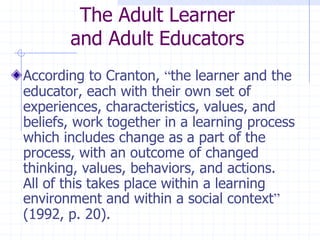
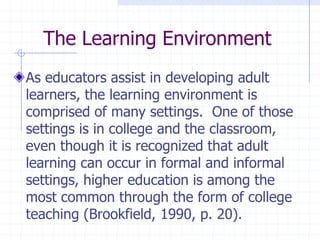
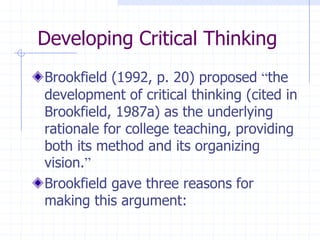
![Developing Critical Thinking (continued)Reason #1 –“Critical thinking is one of the intellectual functions most characteristic of adult life” (Mezirow and Associates, 1990).“Since college students are on the verge of, or fully immersed in, adult life, critical thinking seems an entirely appropriate leitmotif [a dominant and recurring theme] for their education” (Brookfield, 1992, p. 20).](https://image.slidesharecdn.com/criticalthinkingandtheadultlearner-12635139804983-phpapp02/85/Critical-Thinking-And-The-Adult-Learner-23-320.jpg)
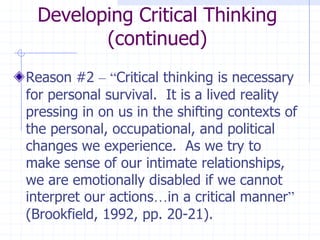
![Developing Critical Thinking (continued)Reason #3 –“Critical thinking is a political necessity in a democratic society [therefore] an entirely appropriate aim of college teaching is to encourage students to develop a healthy attitude of critical scrutiny towards the actions and justifications of elected and unelected political leaders” (Brookfield, 1992, p. 21; cited in Brookfield, 1990a).](https://image.slidesharecdn.com/criticalthinkingandtheadultlearner-12635139804983-phpapp02/85/Critical-Thinking-And-The-Adult-Learner-25-320.jpg)
![Developing Critical Thinking (continued)“For these three reasons the development of critical thinking is an overarching aim of college teaching [and adult education] that crosses curricular contexts, educational settings, and the disciplinary identities with which teachers ally themselves” (Myers, 1986; cited in Brookfield, 1992, p. 21).](https://image.slidesharecdn.com/criticalthinkingandtheadultlearner-12635139804983-phpapp02/85/Critical-Thinking-And-The-Adult-Learner-26-320.jpg)
